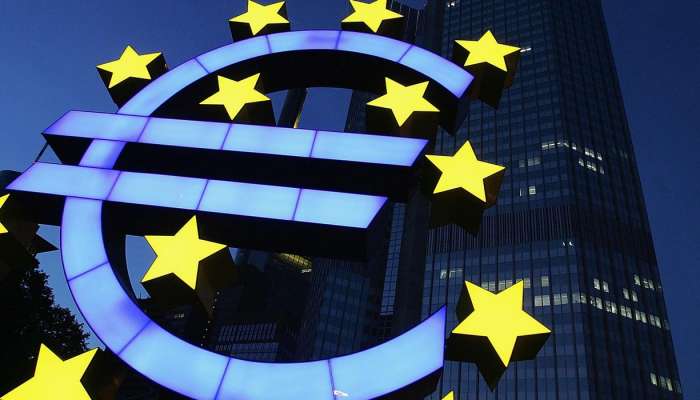

Brussels (Belgium): Responding to concerns of whether the banking turmoil which began in the US would spread to Europe, leaders of the European Union (EU) have said that the European banking sector is stable.
On Thursday, the 27 leaders of the bloc gathered in Brussels as part of a two-day summit to talk about the current status of the European economy, as well as other issues pressing the Union, such as the war in Ukraine.
President of the European Central Bank (ECB) Christine Lagarde joined the summit for economic talks.
There have been concerns within the EU that, following the collapse of Silicon Valley Bank and Signature Bank in the US, the fallout from Switzerland's Credit Suisse takeover could put European banks at risk.
According to Bloomberg, shares of Germany's Deutsche Bank slumped as much as 15% on Friday, marking its biggest decline since 2020 and stoking further fears of a banking crisis.
But German Chancellor Olaf Scholz told reporters in Brussels that there was no cause for concern, as Deutsche Bank had reorganized its business model and was a "very profitable bank."
Prior to the EU leaders' meeting, Paschal Donohoe, Irish Minister for Finance and President of the Eurogroup, shared a similar voice of reasurrance: "I'm confident in the resilience of our banking system at the moment. I think last year was a very good example of that, despite the outbreak of this terrible war on the people of Ukraine," he told reporters.
"But we can never be complacent either, which is why the work of our regulators and future policy change is so important," he added.
Fears of reliving the 2008 financial crisis
Meanwhile, Greek Prime Minister Kyriakos Mitsotakis highlighted that the ECB had done a "very good job" in shoring up any potential banking crisis.
Together with Italy, Portugal, and Spain, his country was severely impacted by the 2008 banking crisis, and memories of the strict austerity measures imposed by the EU at the time still linger in people's minds.
"I would say there has been aggressive regulation by the ECB to ensure mistakes of the past will not be repeated,” Mitsotakis told reporters.
Last week, the ECB raised interest rates by 0.5 percentage points as an inflation control measure amidst current financial tensions.
"The euro-area banking sector is resilient, with strong capital and liquidity positions. In any case, the ECB's policy toolkit is fully equipped to provide liquidity support to the euro-area financial system if needed," the ECB said in a statement on Sunday.
Jacob Funk Kirkegaard, senior fellow at the German Marshall Fund of the United States (GMF) in Brussels told DW that this time, the European economy was not on the cusp of a major financial crisis, adding that what happened in 2008 had been very different.
"The banking crisis which began with issues in the Silicon Valley Bank were somewhat idiosyncratic to banks in the United States, and also basically a supervisory failure by the Federal Reserve. And the issues in Credit Suisse are something markets have known for a long time," he said.
"When Silicon Valley Bank collapsed, markets were already able to estimate whether rising interest rates would impact banks elsewhere buying government bonds. This was not the case in 2008," he added.
But Kirkegaard highlighted that since banks are interconnected, concerns are valid. He believed this was the reason why the US government decided to act so forcefully when guaranteeing the safety of all deposits in the Silicon Valley Bank.
"Within the EU, to secure banks further, momentum is needed in completing the European banking union plan," he added.
Progress in the European banking union?
The European banking union was formed in 2014 after the 2008 financial crisis shook the European economy. It seeks to harmonize banking laws and is meant to ensure that the bloc's banks can withstand financial crises without "recourse to taxpayers' money."
But over the past years, this union has not had a solid European Deposit Insurance System (EDIS) to ensure all deposits are secured at a pan-European level.
"Unfortunately, the problem here is that there are very longstanding political controversies. For example, one case is where the German government, among others, does not want to accept common deposit insurances until the Italian banks reduce holdings of Italian sovereign bonds. And it's sort of a stalemate. So I'm not particularly optimistic on that front," Kirkegaard said.
After the meeting with other EU leaders, Donohoe told reporters that this disagreement was a matter for national parliaments to solve.
German Chancellor Scholz told reporters that the banking union had made more capital accessible within the bloc, and had secured the current levels of stability.
Meanwhile, French President Emmanual Macron told reporters that the banking union was not progressing fast enough. "But the important part is done. Now, we need to go to the question of deposits. Several member states are hesitant, but France is not blocking," he said.
Should Europeans be worried?
While European shares continued to react to global market movements after the meeting with EU leaders had concluded, Donohoe said that there was still no reason to worry.
"If I look at where the economy stands overall, we have an economy that's still growing, that has more people in work in it than ever before, and we have banks that, as I have said, have received the impact of different decisions made here in Europe in recent years regarding their capital, regarding their liquidity. I believe that is valuable, and we will see the benefit of that in the time ahead," he told reporters after the meeting.
Kirkegaard highlighted that amid the ECB's recent interest rate hike and falling energy prices, inflation within the EU would also stabilize.
"Obviously, those who are looking to buy a new house or engage in refinancing will face higher interest rates and will have an issue they will have to wade through in the coming months. But overall, the labor markets across the EU are historically strong. So, while certainly there are issues in individual European countries, the overall situation is actually not bad," he said.
"But it is important to not be complacent, because Europe is still experiencing a war and this will pose strategic challenges which also have an impact on the economy. But compared to the 2008 banking crisis, this current situation is different and not going to lead to an acute financial meltdown," he added.